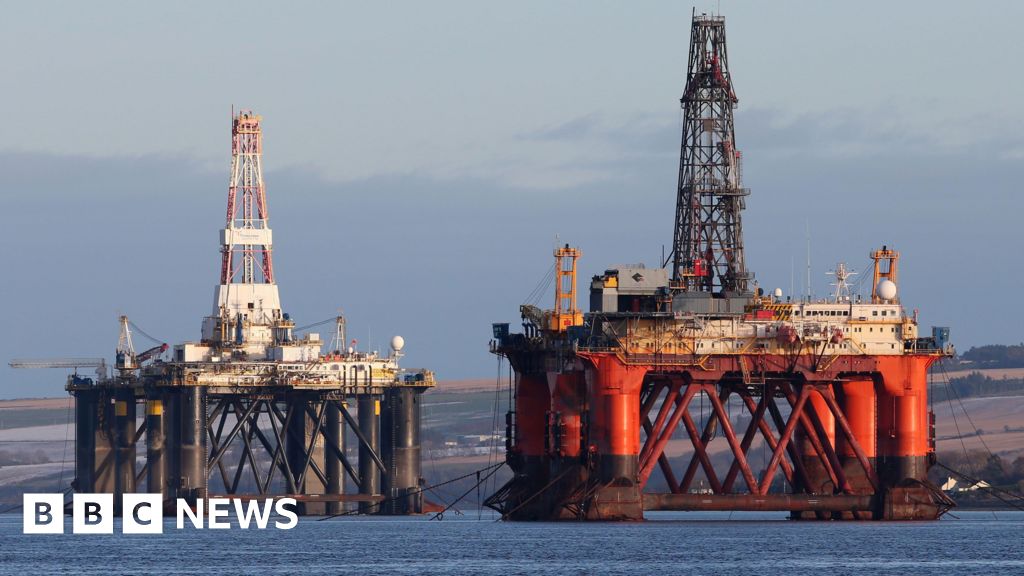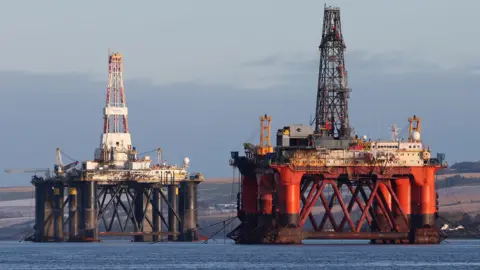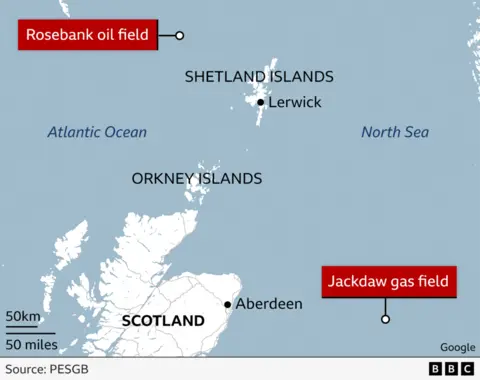Bussiness
Greenpeace legal challenge to Rosebank oil field given go-ahead

 PA Media
PA MediaA legal challenge over the decision to give consent to the UK’s largest untapped oil field has been given the go-ahead by the Court of Session.
Greenpeace and Uplift jointly brought judicial reviews to stop the development of Rosebank oil field and the Jackdaw gas field.
The environment groups say that when consent was granted for the fields off Shetland and Aberdeen, the impact of emissions caused by burning extracted oil and gas was “unlawfully ignored” by regulators.
If the challenge is successful, operators would have to resubmit environmental assessments for approval before drilling can begin.
The cases will heard by the Court of Session in Edinburgh on 12 November.
Uplift accused regulators of “failing to be transparent” in granting the licences and said Rosebank would damage the sea life in the North Sea.
Tessa Khan, climate lawyer and executive director of Uplift, said: “Rosebank is a bad deal for Britain so it’s a relief that the arguments against it will now get a fair hearing in court.
“Now the government accepts the decision to approve the field was unlawful, the oil and gas companies that own Rosebank are alone in trying to drive this disastrous project through court.”
The UK government said in August that it would not fight any cases over Rosebank and Jackdaw.
This came after the Supreme Court ruled in June that regulators, such as the North Seas Transition Authority (NSTA), must consider the total environmental impact of new projects – including the way fossil fuels are used by end consumers.
These are known as Scope 3 emissions.
The Supreme Court’s decision could still be challenged by oil companies, but Greenpeace said the UK government’s unwillingness to defend the cases is “tacit acceptance” that the consent is unlawful.

Greenpeace’s climate team leader, Mel Evans, said: “Both the government and the Supreme Court agree that you cannot ignore the emissions generated from burning fossil fuels.
“Equinor and Ithaca know this, and they know that the consents for these fields are unlawful.
“Despite this they are continuing to develop them during this judicial review, putting people, marine life, and our climate at further risk.”
Norwegian energy giant Equinor and British firm Ithaca Energy jointly own the Rosebank field.
They said it would create about 1,600 jobs during its construction and support about 450 UK-based jobs during its lifetime.
Consent for drilling off the coast of Shetland was granted in September last year.
Shell’s proposals to develop Jackdaw, east of Aberdeen, were approved in 2022 after initially being rejected on environmental grounds.
Net-zero target
The Scottish government has said it has a “presumption against” new oil and gas exploration.
However, First Minister John Swinney said in June that it would still be needed “for a period of time” to help the country meet its net-zero targets by 2045.
The UK government has pledged that oil and gas would play an important role in the economy “for decades to come” as the UK transitions to clean energy.
It is planning to consult later this year on its manifesto position not to issue new oil and gas licences to explore new fields.
The NSTA said it would not comment on a live case.
Equinor declined to comment on the court challenge, but said it was continuing to “work closely with all relevant parties to progress the project”.
Shell said all “relevant concerns and permits” had been put in place for the Jackdaw gas field.
The firm said it would argue that existing consents should remain in place when the case goes before the Court of Session in November.
A spokesperson added: “Jackdaw is a vital project for UK energy security that is already well under way.
“Stopping the work is a highly complex process, with significant technical and safety issues now that infrastructure is in place and drilling has started in the North Sea.”











